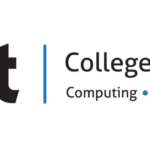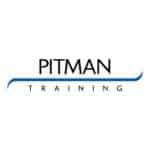ECDL: What is it?
The European Computer Driving Licence (ECDL) is the world’s most successful IT skills certification programme, with over 10 million people having undertaken the programme in more than 60 countries worldwide. An ECDL qualification allows people to demonstrate their competence in using computer applications such as Microsoft Word, Excel, Access and the internet to prospective employers. Part-time ECDL courses are designed specifically for those wishing to gain an international qualification in computing basics. The ECDL syllabus covers fundamental computer skills and the use of common applications in the workplace, the home and in society in general. It is divided into 7 modules (though some countries have 13), 3 of which are compulsory. The qualification is known as the International Computer Driving Licence (ICDL) outside of Europe.
What’s involved
The regular 7 ECDL modules are:
1. Basic Concepts of Information Technology
2. Using a Computer and Managing Files
3. Word Processing
4. Spreadsheets
5. Using Databases
6. Presentation
7. Web Browsing and Communication
Of these, the 3 compulsory modules are Using the Computer and Managing Files (which includes training in IT security); Word Processing (i. e. learning to use Microsoft Word); and Web Browsing and Communications (e. g. learning to use Internet Explorer). Before students get started on an ECDL programme they must first register with their licencee and obtain usually from a registered ECDL test centre a Skills Card (fee normally included in course price), which is used to record candidates results in each of the seven tests comprising the licence, and which is later exchanged for a certificate upon graduation.
Course Content
Because there is a predetermined list of modules for course providers to cover, programmes tend to be quite similar. Where they are inclined to differ is in their intensity and duration: it is possible to get your ECDL qualification in five or six weeks, though working through so much information in so short a space of time may not be for everyone. Courses of greater duration (which can last for twenty weeks and which include online ECDL courses) offer students the flexibility to study and practice at their own pace.
A general requirement of part-time ECDL programmes is that candidates have a basic working knowledge of computers. All ECDL classes, however, will be delivered on a step-by-step basis in order to take into account the differences between students skill and experience levels. For instance, some students may enrol on an ECDL course in order to receive training in a specific area in which they may feel they lack competency; others students may need to learn the basics of each of the ECDL modules. In order to ensure that all licence holders are of a certain standard, candidates are required to pass tests for each module studied. These tests are done online but must be taken at a recognised ECDL test centre (your course provider will be one). They can be taken in any order, within a period of three years. At 45 minutes duration, the tests are also quite short. Students who have completed four of the seven ECDL modules will receive an ECDL Start Certificate.
The full ECDL certificate is only awarded once all seven modules have been successfully negotiated. (Note: failing a test need is not the end of the world it is possible to re-sit exams.)
Why do it
Qualifying with an ECDL certificate confirms your up-to-date IT skills to prospective employers; and because it is the most widely available international IT literacy qualification, it ensures that your skills will be recognised wherever you go, thereby affording graduates a certain degree of career mobility. In an economy that is becoming increasingly reliant on online and digital transactions, achieving a certain level of IT competence is vital to all business organisations and entrepreneurs looking to find a measure of success in their particular areas. It is not solely about economics though: the aforementioned forward momentum of digital media has also created a skills gap. Those left behind are faced with the threat of social exclusion. A part-time ECDL programme can therefore benefit not only your computing competence, but your confidence too.
What comes next
Those that have gained their ECDL qualification may choose to move on to Advanced ECDL courses in Word Processing, PowerPoint Spreadsheets, Databases and Presentations. Other related courses that ECDL certificate holders may consider enrolling on include accounting, business, office administration, payroll or website design. Employment opportunities in these areas are also greatly enhanced by having an ECDL qualification. At a glance An ECDL qualification is a guarantee of your IT competence for employers ECDL certificates are recognised around in world, in more than 60 countries Courses last for between 6 and 20 weeks. Prices tend to be quite similar, typically hovering around the €550/600 mark.















